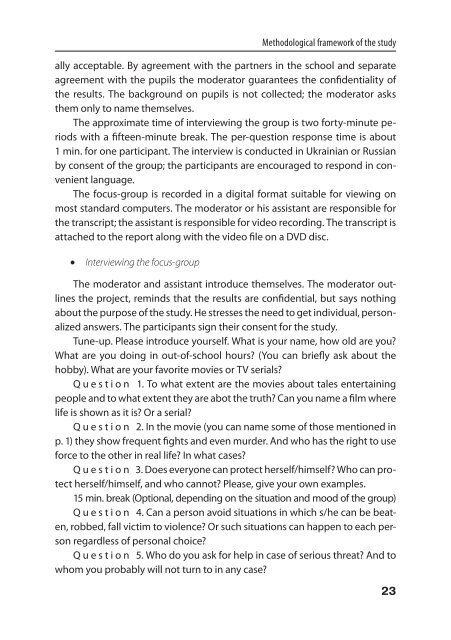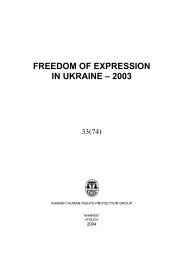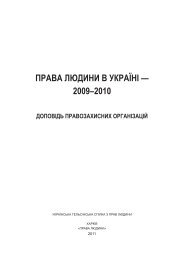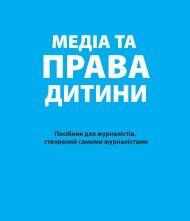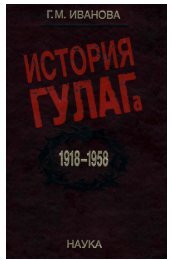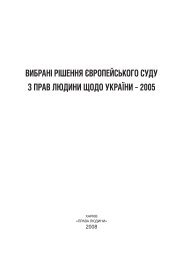TORTURE AND ILL-TREATMENT OF CHILDREN IN UKRAINE
TORTURE AND ILL-TREATMENT OF CHILDREN IN UKRAINE
TORTURE AND ILL-TREATMENT OF CHILDREN IN UKRAINE
- No tags were found...
Create successful ePaper yourself
Turn your PDF publications into a flip-book with our unique Google optimized e-Paper software.
Methodological framework of the studyally acceptable. By agreement with the partners in the school and separateagreement with the pupils the moderator guarantees the confidentiality ofthe results. The background on pupils is not collected; the moderator asksthem only to name themselves.The approximate time of interviewing the group is two forty-minute periodswith a fifteen-minute break. The per-question response time is about1 min. for one participant. The interview is conducted in Ukrainian or Russianby consent of the group; the participants are encouraged to respond in convenientlanguage.The focus-group is recorded in a digital format suitable for viewing onmost standard computers. The moderator or his assistant are responsible forthe transcript; the assistant is responsible for video recording. The transcript isattached to the report along with the video file on a DVD disc.• Interviewing the focus-groupThe moderator and assistant introduce themselves. The moderator outlinesthe project, reminds that the results are confidential, but says nothingabout the purpose of the study. He stresses the need to get individual, personalizedanswers. The participants sign their consent for the study.Tune-up. Please introduce yourself. What is your name, how old are you?What are you doing in out-of-school hours? (You can briefly ask about thehobby). What are your favorite movies or TV serials?Q u e s t i o n 1. To what extent are the movies about tales entertainingpeople and to what extent they are abot the truth? Can you name a film wherelife is shown as it is? Or a serial?Q u e s t i o n 2. In the movie (you can name some of those mentioned inp. 1) they show frequent fights and even murder. And who has the right to useforce to the other in real life? In what cases?Q u e s t i o n 3. Does everyone can protect herself/himself? Who can protectherself/himself, and who cannot? Please, give your own examples.15 min. break (Optional, depending on the situation and mood of the group)Q u e s t i o n 4. Can a person avoid situations in which s/he can be beaten,robbed, fall victim to violence? Or such situations can happen to each personregardless of personal choice?Q u e s t i o n 5. Who do you ask for help in case of serious threat? And towhom you probably will not turn to in any case?23


